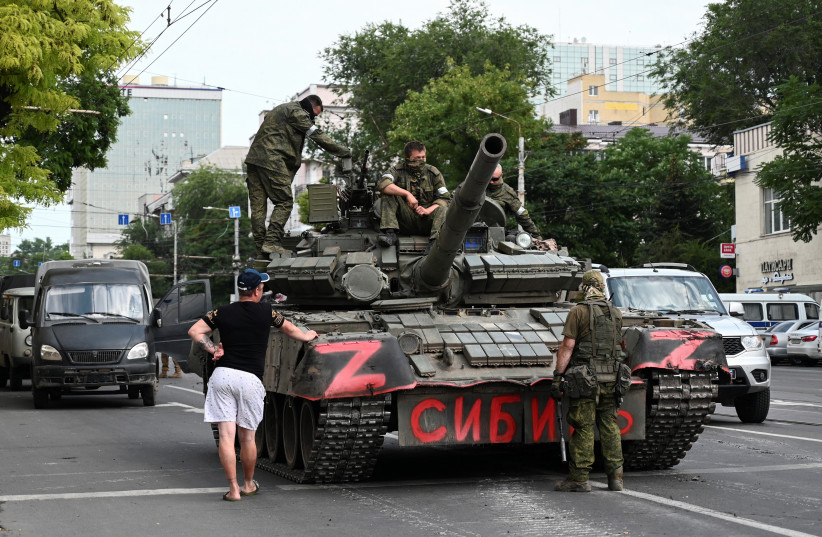While the Wagner mutiny may not have a direct material impact on the Russian defense against Ukraine, it will likely undermine morale and operational flexibility.
The private military company appeared to hold the bulk of its forces in the rebel Luhansk area before it took Rostov-on-Don and marched on Moscow over the weekend, so the removal of those forces from Ukraine likely did not directly alter conditions for Russian forces south of the Dieper River.
Yet manpower and equipment are not the only factors in warfare; troop morale can win and lose battles. While it has been said that an army marches on its stomach, it fights with its heart.
And morale is something Russia has had issues with since the beginning – with continuous complaints of poor equipment, expired rations, and little training to deal with the inhospitable terrain. Soldiers have allegedly been shot for deserting or refusing orders; the disrespect and abandonment of the soldiers by Russian brass is palpable in Russian Telegram channels. Wagner head Yevgeny Prigozhin called to remove these elites in his short-lived revolt, and the popular support for this call was built on the rising discontent among military veterans.
Mutiny and discontent could spread further
This mutinous strain of discontent could spread to the fronts being battered by the Ukrainian offensive, where Wagner Telegram channels share conscript reports of poorly led assaults and inactive artillery. While Prigozhin may have backed down, the cause he stoked still burns – and could ignite on the front.

And even if the fires of mutiny do not spread, the revolt succeeds in casting Russian President Vladimir Putin’s regime as weak. If Putin and his mistrusted Defense Ministry are seen as weak, this would reduce confidence in commands. Officers and soldiers alike may act at their own discretion, desynchronizing operations and different branches, and reversing Russian efforts to improve coordination between different military bodies that have been made since the war began.
The deal negotiated by Belarusian President Aleksandr Lukashenko with Prigozhin to halt his march on Moscow is light on public details, but it could result in Wagner being removed from Ukraine, perhaps to the Middle East or Africa. Either way, many mercenaries will likely not forgive Prigozhin’s decision not to cross the Rubicon, and the PMC (private military company) will likely see mass desertions and cessation of contracts.
This could impact Russian lines, because troops will understand that one of their best players on the field is being removed from action. These were the soldiers that enabled the taking of Bakhmut, and secured many other victories on behalf of the Kremlin. Knowing that your star player isn’t on the bench to join the match can drag the morale of the whole team down.
Wagner’s march created an atmosphere of uncertainty, something undesirable for troops already fighting in chaotic situations. Rumors will abound, as will conspiracy and other diseases of doubt and dissent to sap the will to fight.
The movement of Wagner on Moscow allegedly did cause some transfer of war materials from the front to re-enforce the Russian capital, according to the Ukrainian National Resistance Center, though it cautioned that it was not mass movement. “Currently, they plan to keep them for at least a week,” it said.
The possible loss of Wagner in Ukraine will also likely impact the ability of officers to deploy forces. If a commander knows there are 25,000 crack troops in reserve, they might be more likely to take risks with the units that they have. A person with 1,000 dollars is unlikely to invest that much in the stock market, but a person with 2,000 dollars might be more inclined to, knowing they have just as much in reserve; commanders may feel more cautious knowing that there is less backup available.
Twenty-five thousand mercenaries may be a drop in the bucket compared to the hundreds of thousands of soldiers mobilized by Putin, so it is possible that this may not actually have an impact and instead be an incorrect assessment of the situation. Even if there is an impact, it is difficult to say how pronounced it will be.
That said, the Ukrainian military has signaled it feels that Russia has been weakened and may press the advantage. Whether the opportunity is a mirage or an actual chink in Russian armor, will be revealed on the battle field.
